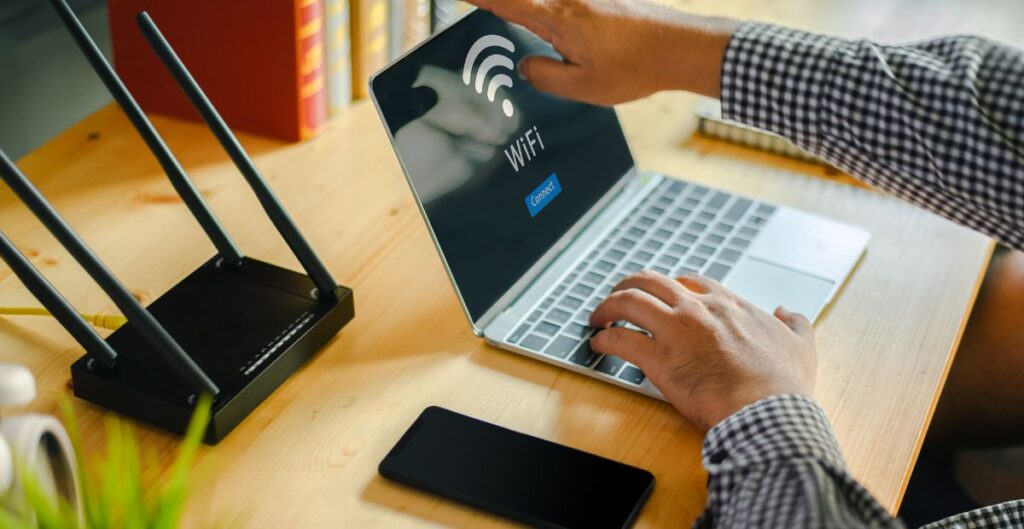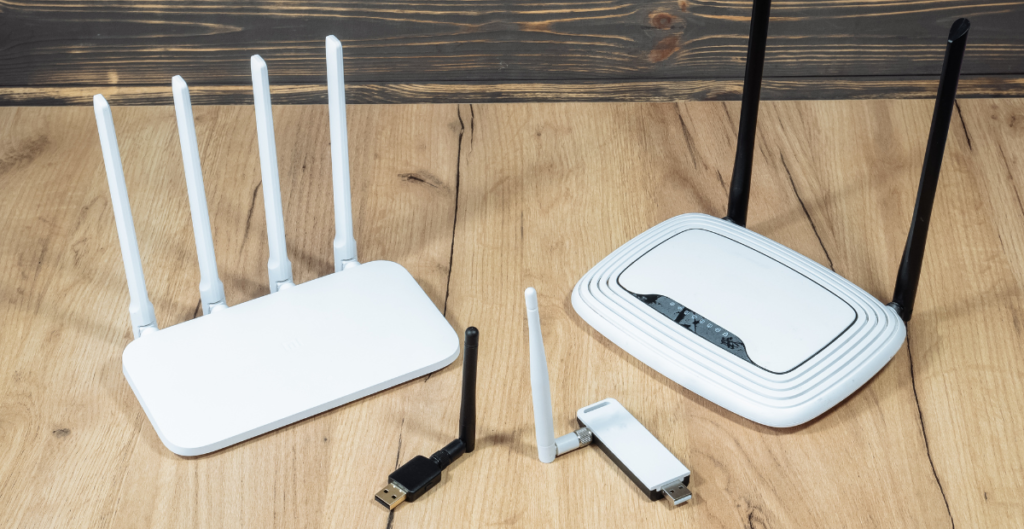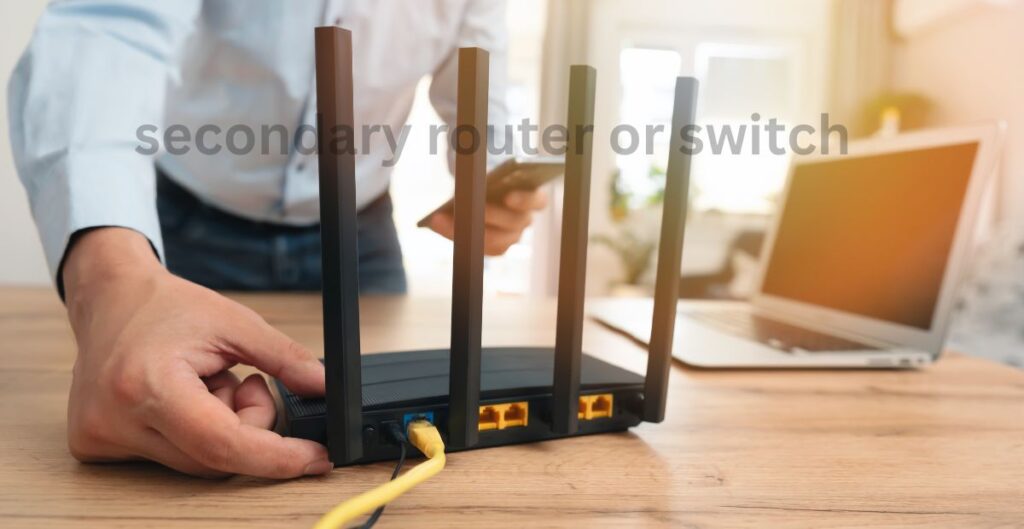Going to a coffee shop while utilizing public WiFi to surf the web exposes you to possible attackers who monitor your online activities. Your belief that your internet connection protects your privacy may be mistaken since hackers could spy on your activities. ‘What is WiFi Proxy’ The WiFi proxy service provides online privacy protection which allows users to access restricted websites while boosting their browsing speed.
An explanation of what the WiFi proxy service represents as well as its operational methods follows. This guide defines all concepts using basic language so that anybody including a student in the 6th grade can easily understand them.
- What is WiFi Proxy Used For?
- What is Proxy? Understanding the Basics
- What is a Proxy for a Person?
- What is Proxy in Networking?
- What is a Proxy Server Address?
- Proxy Server Example: How It Works in Real Life
- Proxy vs VPN: What’s the Difference?
- How to Set Up a WiFi Proxy (Step-by-Step Guide)
- Top Questions About WiFi Proxy
- Final Thoughts: Should You Use a WiFi Proxy?
What is WiFi Proxy Used For?
Through WiFi proxy operation your device sends requests to internet destinations using the proxy server as a connection intermediary. Your request travels through the proxy server before it reaches its intended website.
Here’s why people use a WiFi proxy:
✅ Hides your IP address – Helps keep your location private.
✅ Unblocks restricted websites – The proxy server enables you to bypass blocked website restrictions for accessing country-restricted content.
✅ Speeds up internet connection – Stores copies of websites so they load faster.
✅ Protects against cyber threats – The protection of data in public WiFi networks happens through the shield offered by this tool against cyber attacks.
💡 Example: The WiFi proxy provides students with blocked access to social media sites through its intermediary connection.
What is Proxy? Understanding the Basics
A proxy system functions as a tool or system that directs your internet traffic toward another server before your website becomes accessible.
Proxy servers exist in several types which include:
Fast website caching occurs through a Transparent Proxy without providing IP address privacy. Anonymous proxy functionality conceals your actual IP address even though it exposes your proxy server relationship to providers. The High Anonymity Proxy serves as an absolute identifier concealer for achieving total privacy.
- Transparent Proxy – Fast website caching occurs through Transparent Proxy without providing IP address privacy.
- Anonymous Proxy – An anonymous proxy protects your IP address yet it reveals your proxy usage to third parties.
- High Anonymity Proxy – This Proxy serves as an absolute identifier concealer for achieving maximum privacy.
Learn more about proxy servers and their benefits.
What is a Proxy for a Person?
The term proxy describes someone who holds the authorization to represent another person while performing tasks.
💡 Example: You can authorize someone as your proxy to serve as your substitute at shareholders’ meetings since your absence.
Similarly, when using the internet through a networking setup your proxy server represents you and serves as your intermediary access point.
What is Proxy in Networking?
Network users can access websites through a server known as proxy which functions as an intermediary for internet traffic between them and web destinations.
Benefits of a proxy in networking:
✅ Enhances security – Protects businesses from hackers.
✅ Improves speed – Reduces bandwidth usage.
✅ Controls access – Helps schools and companies block certain websites.
💡 Example: Offices use a proxy to monitor and restrict employees’ internet activity.
Find out more about how proxies work in networking.
What is a Proxy Server Address?
A proxy server address represents the unique IP address of such servers. Your device uses this address to route internet requests through the proxy before reaching a website.
🔹 How to Find Your Proxy Server Address on Windows:
- Open Command Prompt (Win + R, type cmd, press Enter).
- Type netsh winhttp show proxy and press Enter.
- The displayed page contains your proxy server address together with its assigned port number.
Users should master the process of proxy server setup for various types of devices.
Proxy Server Example: How It Works in Real Life
Think of a restaurant. By using a waiter as a proxy you submit your orders to receive service from him for a dining experience.
Similarly, A proxy server accesses data in your place because it creates additional security together with anonymity for your network traffic.
Here’s an example, Even though proxies and VPNs aim to preserve privacy they implement protection methods in different manners.
Proxy vs VPN: What’s the Difference?
The protection services of proxies and VPNs differ although they both safeguard your privacy:
| Feature | Proxy Server | VPN |
| Hides IP Address? | Yes | Yes |
| Encrypts Data? | No | Yes |
| Speeds Up Internet? | Yes | No |
| Best For? | Unblocking content | Security & Privacy |
💡 Example: Those who want to work around geographic blocks should select a proxy server. People who require powerful encryption should select a VPN connection instead.
Learn about fundamental elements that differentiate the proxies from VPNs.
How to Set Up a WiFi Proxy (Step-by-Step Guide)
Setting up a WiFi proxy is simple.
For Windows:
- Go to Settings → Network & Internet → Proxy.
- Turn on Use a proxy server.
- Enter your proxy address and port number.
- Click Save.
For Mac:
- Open System Preferences → Network.
- Select WiFi → Click Advanced → Go to the Proxies tab.
- Check Web Proxy (HTTP) and enter proxy details.
- Click OK → Apply.
Get a detailed guide on setting up a proxy server.
Top Questions About WiFi Proxy
Should My WiFi Proxy Be On or Off?
If you want more privacy and security, turn your WiFi proxy on. If your internet is slow or experiencing issues, turn it off and test your connection.
Is a Proxy Server Safe?
To achieve better privacy along with enhanced security it is necessary to activate your WiFi proxy settings. The performance of your internet connection depends on your WiFi proxy status which you can check by turning it off for testing purposes.
Which Proxy is Best for WiFi?
The best WiFi proxy depends on your needs:
- For privacy, use a high anonymity proxy.
- For speed, use a transparent proxy.
- For security, use a VPN instead.
Learn more about choosing the best proxy service.
Final Thoughts: Should You Use a WiFi Proxy?
WiFi proxies provide excellent tools which protect privacy and increase speed and unlock restricted content. Using a proxy server stands as a wise decision when browsing the internet from public WiFi connections or seeking secure browsing environments.
👉 Want better online privacy? Get a trusted WiFi proxy service today!






